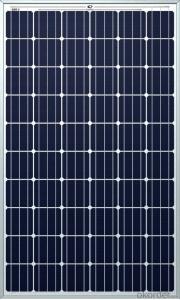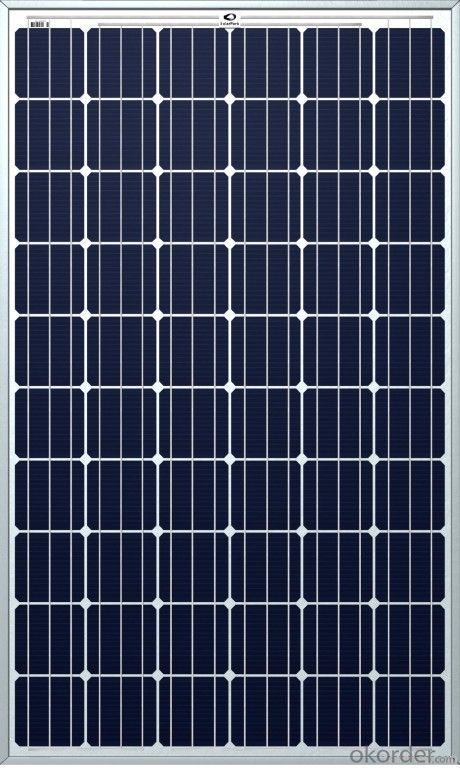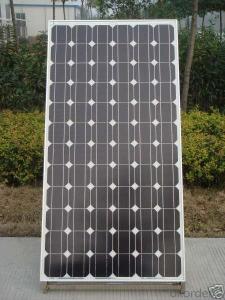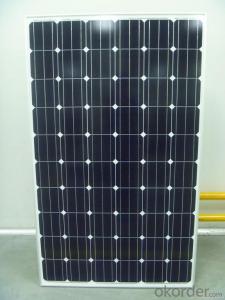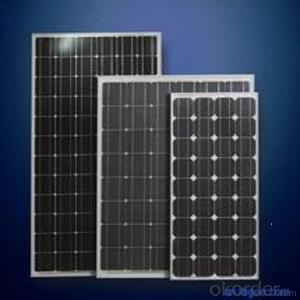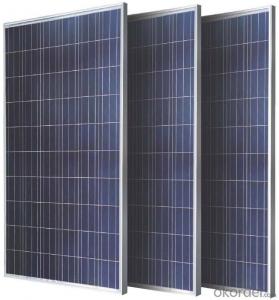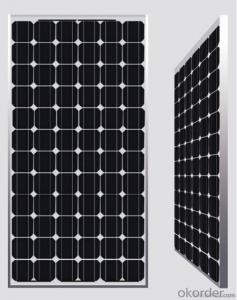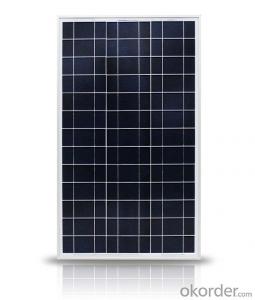Energizer Solar Panels - 300w Mono & Poly 260w/265w/270w/280w/300w/310w High Efficiency Solar Module
- Loading Port:
- Shanghai
- Payment Terms:
- TT OR LC
- Min Order Qty:
- 1000 watt
- Supply Capability:
- 10000 watt/month
OKorder Service Pledge
OKorder Financial Service
You Might Also Like
Specification
Features
1) Product name: solar panel / module
2) Solar cell: Mono-crystalline / Poly-crystalline / Amorphous
3) Tempered glass laminated with aluminum frame
4) Life time: 20 - 25 years
5) Temperature co-efficiency: A=+1,46mA B=-79mV, Rp/p=-0.43
6) Power specification at 1kW/m 2, AM 1, 5
7) Output cable: multi contact connectors
8) Construction:
a) Front: High-transmission 32mm tempered glass
b) Back: TPT
c) Encapsulant: EVA
9) Frame: aluminum
10) Certification: CE, TUV
Specification
STC | BSM230P-60 | BSM235P-60 | BSM240P-60 | BSM245P-60 | BSM250P-60 | BSM255P-60 | BSM260P-60 |
Maximum Power | 230W | 235W | 240W | 245W | 250W | 255W | 260W |
Module Efficiency | 14.10% | 14.35% | 14.66% | 14.96% | 15.30% | 15.60% | 16.00% |
Maxi Power Current | 7.62A | 7.72A | 7.895A | 8.033A | 8.23A | 8.31A | 8.47A |
Maxi Power Voltage | 29.5V | 30.2V | 30.4V | 30.5V | 30.4V | 30.6V | 30.7V |
Short Circuit Current | 8.31A | 8.59A | 8.718A | 8.781A | 8.81A | 8.84A | 8.93A |
Open Circuit Voltage | 36.8V | 36.8V | 37.2V | 37.2V | 37.6V | 37.7V | 37.8V |
Power Tolerance | 0~+5W |
| Values at Standard Test Conditions STC(Air Mass AM1.5,Irradiance 1000W/m²,Cell Temperature 25℃) | |
| Mechanical Characteristics | |
Cell Type | Polycrystalline 156x156mm,60(6x10)pcs in series |
Glass | High Transmission,Low Iron,Tempered Glass |
Frame | Anodized Aluminium Alloy |
Junction box | IP65/IP67 rated,with bypass diodes |
Dimension | 1640x990x35/40mm |
Output Cable | 4mm2(EU)/12AWG(US),1000mm² |
Weight | 19Kg |
Installation Hole Location | See Drawing Above |
No.of Bypass Diodes | 3/6 |
Images
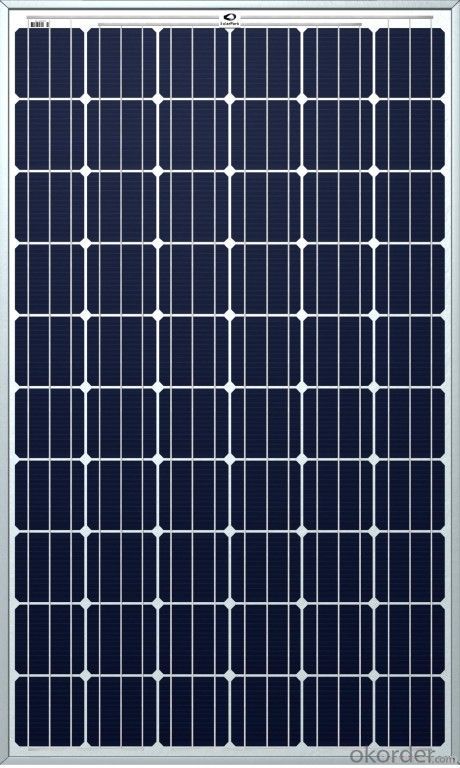
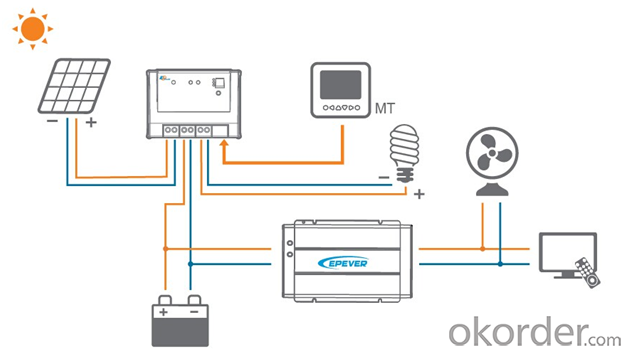
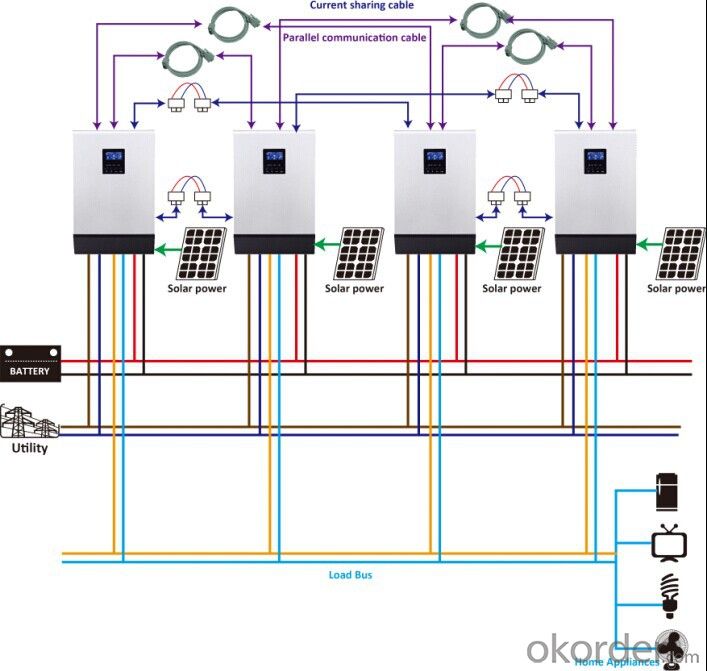
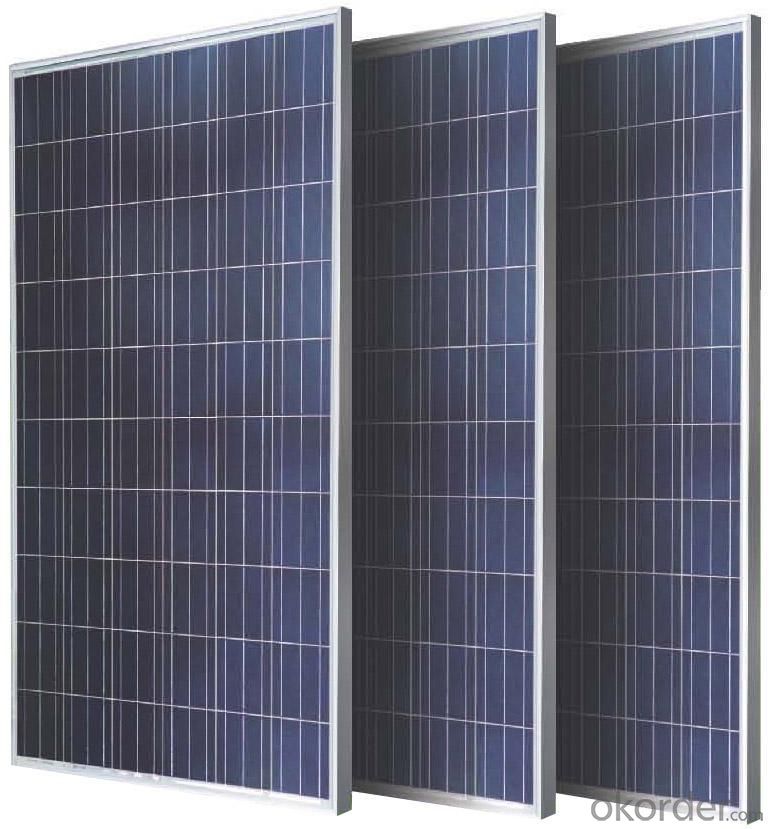
Packaging & Shipping
What is the packing?
1.Package: Carton Box for packaging, or Wooden Box advised for Samples to protect in transportations. Package designed by Clients is welcomed.
2.Shipping: DHL,FEDEX,UPS,EMS,AirWay and By Sea.
3.Payment: T/T( telegraphic transfer (T/T) and Western Union
4.Welcome to your Sample Order to test First.
FAQ
Q1: How to choose a right inverter?
A1:Tell us your demand, then our sales will recommend a suitable inverter to you.
Q2: What's the different between inverter and solar inverter?
A2: Inverter is only accept AC input, but solar inverter not only accept AC input but also can connect with solar panel to accept PV input, it more save power.
Q3: How about the delivery time?
A3: 7 days for sample; 25 days for bulk order.
- Q: Hi. I need to build a solar panel for a project. it should be able to light a 60 watt light bulb. also, it should be about 3x3 ft if it is 50% efficient. if anyone knows any websites or can help me, please answer! thanks.
- Making your own photovoltaic (solar electric) panel is a nontrivial matter if you want to get 60 watts out of it. If this is a science fair project, there are some possible paths that I'd suggest: ) Make your own cupric oxide panel. With just one square foot, you can harvest perhaps 0.5 mW in bright sun - enough to power a solar calculator; -or- 2) Buy a panel to light your 60 watt bulb. You could probably get away with a panel that is 6 square feet, but would use a car headlight as the lamp. If you wanted to light a regular household bulb, you would need electronics to step up the voltage, and you would lose a sizeable fraction of the energy just in the conversion. -or- 3) Buy broken solar cell pieces, or individual solar cells, and solder them together into your own panel. This is a LOT of trouble, and is a finicky process to get working and keep working. And it may not end up being cheaper than buying a ready-made panel. But you can claim that you made it! By the way, crystalline silicon panels are in the ballpark of 5% efficient, and a 3' x 3' one would produce in the neighborhood of 20 watts.
- Q: Can solar panels be used for air conditioning?
- Yes, solar panels can be used for air conditioning. By converting sunlight into electricity, solar panels can power air conditioning units, reducing reliance on the grid and providing a renewable energy solution for cooling purposes. However, the efficiency and capacity of solar panels may vary depending on factors such as the size of the system, available sunlight, and the energy demands of the air conditioning unit.
- Q: How do solar panels affect the resale value of a property?
- Solar panels can have a positive impact on the resale value of a property. Studies have shown that homes equipped with solar panels tend to sell for a higher price and at a faster rate compared to homes without solar. This is because buyers are increasingly interested in energy-efficient and sustainable features. Additionally, solar panels can help reduce energy costs, making the property more attractive to potential buyers.
- Q: How much electricity can a solar panel produce?
- The amount of electricity a solar panel can produce depends on several factors, such as its size, efficiency, and the amount of sunlight it receives. On average, a standard solar panel can generate anywhere from 250 to 400 watts of electricity per hour. However, larger and more efficient panels, combined with optimal sunlight conditions, can potentially produce even more electricity.
- Q: Do they really save energy? Cut or almost eliminate your electricity bill, if so, how much?Do they have a reserve unit to save electricity that I don't use, to use when the sun is not out?Can it produce enough electricity to cool a house and keep lights and appliances runningLastly, how much are the panels are running for.
- In California, if a house is now connected to the grid, typically, they stay connected to the grid even after installing solar electric panels. In this way, no batteries are required to run at night or over cloudy periods. And the house gets credit for energy generated in excess of usage. This scheme also means that you can size your array to only generate a portion of your electrical usage, which is also the usual decision. Since you mention cooling, an air conditioner is a big power drain. We have no A/C, so a modest 3 kW array is enough to supply all our electrical needs. If we had central air conditioning, that number might be doubled or tripled. Your best bet is to contact a local solar installer to do an analysis and quote on your house. How much it costs, and whether you actually will save money in the long run, depends on where you live, and how much electricity you use. Our system cost $2,000 after all rebates and credits.
- Q: This is for my science project and i cannot figure it outWe assumed that blue light shining on a solar panel would give off the higher volt reading because it has the shortest wavelength and the highest energy, but it was actually the lowest. Why does this happen? Im very confused And cant find the answer anywhere.... ,thank you!!
- It is based on what the solar panel is made out of. Many of them will generate electric into the NIR region.
- Q: Can solar panels be damaged by hail or extreme weather?
- Yes, solar panels can be damaged by hail or extreme weather. Hailstorms with large-sized hailstones can cause physical damage to the solar panels, such as cracks or shattered glass. Extreme weather events like strong winds, heavy snowfall, or storms can also potentially damage the panels or dislodge them from their mounts. It is important to ensure proper installation and employ protective measures, such as using hail-resistant materials or installing panels at appropriate angles, to minimize the risk of damage.
- Q: i need someone to advice me which solar panels to buy.i have looked into few companies and i need some more info before decidingthe companies i checked were Sun tech trina solar Canadian solar and LDK solar.whice company should i pick?? please help.
- I did that 25 years in the past and happy I did. they're nonetheless operating high quality with little upkeep. we stay in necessary large apple so we've about an same type of cloud cover you do, and at the same time as that is no longer suitable, you could make it artwork. the nice and comfy button isn't spending plenty so that you've a life like payback time. I designed and outfitted my own, yet i did not layout for top performance; and at the same time as it would not generate all our warm water each and each of the time, it takes the edge off our gas bill. locate someone who has them and note if it paid off for them. don't be the first to get them until eventually you opt for to do slightly engineering. image voltaic voltaic panels could no longer be used to warmth water electrically, that is truly inefficient and could no longer payback. DHW heating is low-tech and all and dissimilar needs warm water. Voltaics receives extra valuable in years yet to go back, and expenditures are dropping so it would not make experience to purchase now.
- Q: And how do you choose the best one for the best price?I saw a 400 watt monocrystalline solar panel
- The polycrystalline solar panel has a longer life-span and has a higher efficiency. What this means is that from the energy that 'hits' the solar panel, more is caught and used to convert into electrical energy. A polycrystalline solar panel will have an efficiency of about 4%. The monocrystalline solar panel has a similar efficiency but the cells are prone to sunlight, so the efficiency drops over the years.
- Q: Are solar panels affected by shade?
- Yes, solar panels are affected by shade. Shade can significantly reduce the efficiency and output of solar panels as shading obstructs sunlight, which is necessary for generating electricity. It is important to install solar panels in areas with minimal shade to maximize their performance and efficiency.
Send your message to us
Energizer Solar Panels - 300w Mono & Poly 260w/265w/270w/280w/300w/310w High Efficiency Solar Module
- Loading Port:
- Shanghai
- Payment Terms:
- TT OR LC
- Min Order Qty:
- 1000 watt
- Supply Capability:
- 10000 watt/month
OKorder Service Pledge
OKorder Financial Service
Similar products
Hot products
Hot Searches
Related keywords
